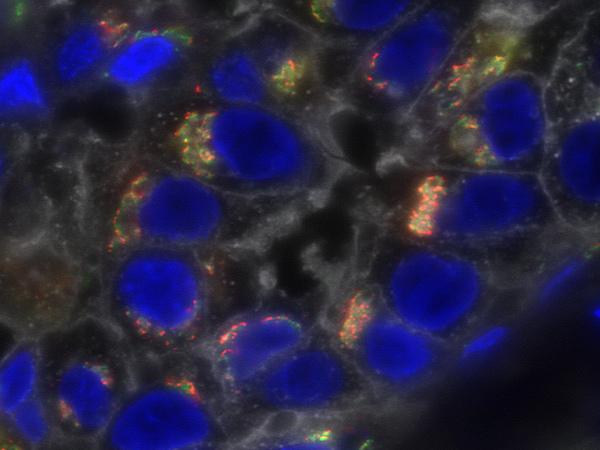Treating Triple-negative Breast Cancer with Immunotherapy
The U.S. FDA approved the immune checkpoint inhibitor pembrolizumab combined with chemotherapy to treat certain breast cancer patients before surgery.
The U.S. Food and Drug Administration (FDA) approved the immunotherapeutic pembrolizumab for patients with high-risk triple-negative breast cancer, to be administered in combination with chemotherapy before surgery, then without chemotherapy after surgery.
In addition, the agency granted regular approval to pembrolizumab with chemotherapy for patients with locally recurrent unresectable or metastatic triple-negative breast cancer whose tumors express the biomarker PD-L1. The FDA granted accelerated approval for this use of pembrolizumab in November 2020.

Both approvals were based on a randomized, multicenter, double-blind, placebo-controlled clinical trial in 1,174 newly diagnosed patients with high-risk, early-stage, triple-negative breast cancer. Patients treated with pembrolizumab plus chemotherapy had a complete response rate of 63 percent, compared with 56 percent among patients treated with placebo plus chemotherapy.
Pembrolizumab is in a class of cancer immunotherapeutics known as immune checkpoint inhibitors. It targets the protein PD-1, which is expressed on the surface of immune cells called T cells. When PD-1 binds to its partner, PD-L1, which is highly expressed on the surface of many cancer cells, it acts as an immune system brake, preventing T cells from attacking and destroying the tumor. By targeting PD-1, pembrolizumab releases the brake to help the T cells fight cancer.
Breast cancer is the most common type of cancer diagnosed in women. In 2021, an estimated 281,550 were expected to be diagnosed with the disease. Triple-negative breast cancer is one of the major subtypes of breast cancer and accounts for approximately 10 percent of all cases. This subtype of breast cancer derives its name from the absence of three drug targets commonly found on cancer cells in other subtypes of the disease.
The FDA decision was rendered on July 26, 2021.
